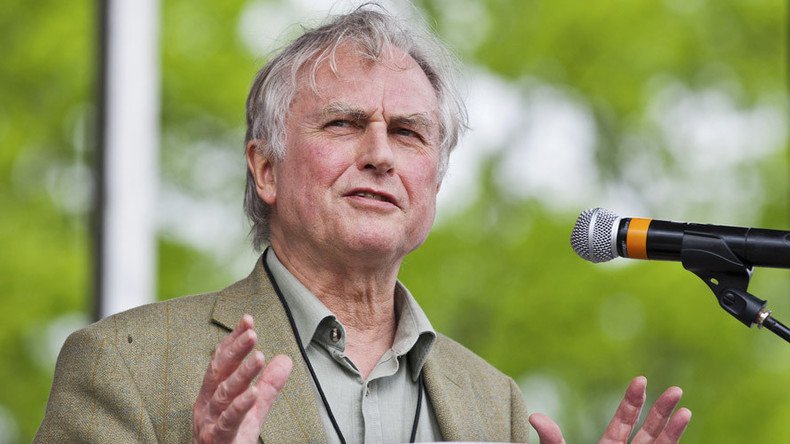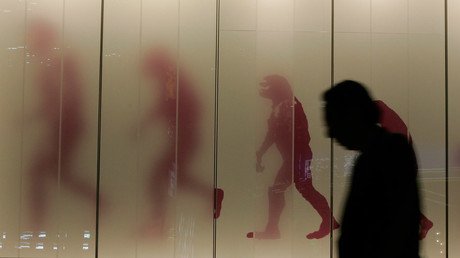Scientism: Religion of the new heresy-hunters

When failure to embrace what the scientific establishment currently believes in cases where it can produce no conclusive evidence results in a witch-hunt, the cause of true science is not served.
Recently, Christina Wilkinson, of St Andrew’s Church of England school in Oswaldtwistle, Lancashire, came under fire for falling out of step with orthodoxy on the issue of the origins of life.
The Guardian reports that Wilkinson tweeted in response to London headteacher Tom Sherrington who urged teachers to stick to science when teaching young minds where life comes from: “Evolution is not a fact. That’s why it’s called a theory! There’s more evidence that the Bible is true.”
I am not here to argue for what Christina Wilkinson believes about the Bible, nor even merely to argue that she has the right to believe whatever she wants, but rather that the attacks against her – and insistence that she quieten down her Wrongthought – are born of a mentality with more in common with the excesses of the Cloth than with the advances of the Enlightenment.
Wilkinson clearly realized she had tweeted in haste, and attempted to pacify the gathering crowd by issuing a statement saying: “I’d like to make it clear that we teach the full national curriculum in school and that our pupils receive a fully rounded education.”
As a result, Wilkinson’s attempts at clarification were not deemed sufficient, and there have been calls for her to resign.
Theories and laws
Wilkinson is correct – at least in the first part of her initial statement: evolution is, objectively, a theory. It may be treated by the scientific establishment as a fact, but that does not make it one.
Theories – like thought experiments – have a place. The realm of theory is where the mind goes for an after-dinner glass of port and cigar and stretches out in a leather armchair in front of the fire and blows a few what-if-scenario smoke-rings around the sitting-room.
But scientific methods are where the evidence comes in. What such methods have in common is that conclusions are based on observation and experimentation. While exact methods vary depending on the field, the constant is: you can check; the findings are demonstrable and repeatable. This is what distinguishes law from theory.
School in US ‘banishes’ 7yo student for saying he doesn’t believe in God – lawsuit http://t.co/6aJ7CuJRu7pic.twitter.com/LdUBv0Nwop
— RT (@RT_com) August 5, 2015
Reputable, genuine scientists use both systems – and the world is much improved as a result.
The problem comes when those who presume to speak for science forget the distinction between theory and law, and simply attack those who have not forgotten it.
The secular priest Richard Dawkins chimed in that Wilkinson was misusing the word theory.
“Scientists call evolution a theory only in a special scientists’ sense, which is NOT the same as the layman’s ‘tentative hypothesis’,” he said.
He continued: “This is so often misunderstood that I now recommend abandoning the confusing word ‘theory’ altogether for the case of evolution. Evolution is a fact, as securely attested as any fact in science. ‘We are cousins of monkeys and kangaroos’ can be asserted with as much confidence as ‘Our planet orbits the sun’.”
I am not here interested in the rightness or otherwise of Dawkins’ assertions. My point is that theories do not cease to be theories simply because Richard Dawkins recommends that they not be seen as such. There is either empirical evidence, or there isn’t. And if there isn’t, Dawkins’ “recommendations” should not interest us if our allegiance is to science and its methods, rather than to Mr. Dawkins and his recommendations.
Victory for man who registered 'Atheist' vanity plate... http://t.co/yZKrGCDGEcpic.twitter.com/rwqX4kcrol
— Mary (@doubledittos) August 29, 2013
If you have proof: bring it. If you do not: acknowledge openly that you have theory – perhaps a well-honed, much loved theory, but a theory nonetheless.
But for Dawkins to claim in the absence of proof that he has a right to his theory greater than Christina Wilkinson – a teacher in a religious school – has to hers, places him rather than her in the role of ideologue.
Science and Scientism
There is a distinction to be made. The behavior which Dawkins and his acolytes exhibit is not scientific – at least by the definition above, that is: subject to a method requiring observation, experimentation and proof. It is founded in a belief system, one which, at bottom, rests upon belief in scientists. It is – ironically – a religion; we may call it Scientism.
One may choose to embrace Scientism. But it is not scientific. It does not draw one who chooses such a faith any closer to truth than belief in the Church of England’s priesthood would draw Christina Wilkinson closer to God.
And it is here that my problem with Dawkins and his ilk begins. Dawkins is as entitled as the next man to make what sense he can of it all. But it irritates me that he makes a jolly good living conflating science with Scientism. Whilst pretending to be the successor to the original and dissident thinkers striving for truth against the dogmatism of Rome, in reality he has a dogma, and his job is not to prove it, but to enforce it.
Thus, he has more in common with those who oversaw the use of the rack than with those who were ever on it.
In the absence of demonstrable proof
The Socratic paradox goes, “I know one thing: that I know nothing.”
Whether or not Socrates said this is immaterial to the fact that Socrates was no dummy and this fundamental humility was the engine which drove his acquisition of wisdom.
There is another saying – appropriately ascribed to Unknown – which goes, “Only a fool knows everything. A wise man knows how little he knows.”
True scientists – Science if you like – is modest. It can speak frankly about what it does not know. And if Dawkins and his co-religionists were hewn of such rock, that would be fine.
But Scientism knows everything. It is arrogant; smug in repose and vicious in attack. The reluctance with which it forgets its targets’ faults is matched only by the ease with which it disregards its own.
It is a secular priesthood, and one which trains its neophytes into unthinking acceptance of doctrine. And it is time that we – the laity – ceased colluding with it in its conflation of Scientism with actual science.
To return to the case of Christina Wilkinson, Graham Jones, Labour MP for Hyndburn, whose constituency includes Wilkinson’s school, said: “It’s a Church of England school and it will, of course, teach the Bible. But it should also teach the children about other religions and beliefs.
“The national curriculum requires a more broad-based perception of evolution and a balance of opinions has to be struck so pupils can make up their own minds.”
Exactly.
The theory of evolution is not, in essence, new. Empedocles was arguing for something materially similar in the 5th century BCE. His theorizing is fantastical to us today and – given his inability to produce any evidence – we feel no qualms about rejecting his cogitations on this subject despite his brilliance in other areas.
Needing to be seen to have all the answers is a requirement of priesthood, not of science. And were the likes of Dawkins and his congregation defending science – i.e. something based in a scientific method – that would be one thing. But he is not defending science on this point (at least, not by any classical standard definition). He is defending Scientism.
Science does not need to be defended because it can demonstrate its proofs. Scientism – like the dogmas of the Catholic Church before it – cannot, which is why it must threaten.
Doubtless, the Church, science – and even Scientism – have produced their brilliant men. But the question is not whether Dawkins and his conclave are brilliant. The question is whether they can meet the requirements of the discipline they claim to submit to, and the short answer in this case is – as it stands – they cannot.
And the shame of it is, that by the use of dogma-driven tactics, the true scientific method is cheapened by those who claim loudest to support it.
The statements, views and opinions expressed in this column are solely those of the author and do not necessarily represent those of RT.














